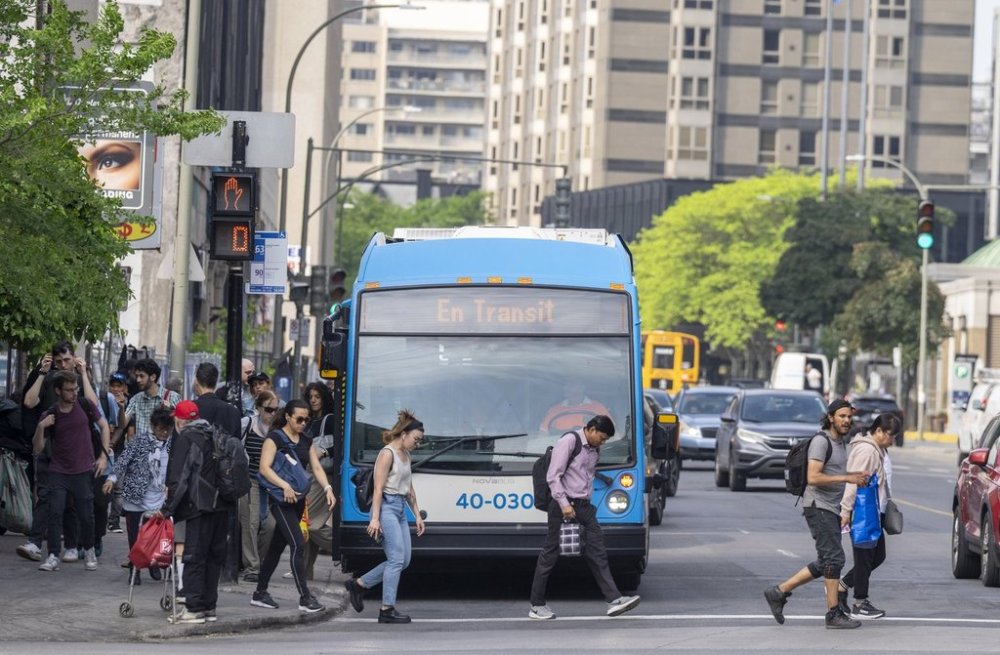Trump’s 10% bus tariffs are about to pinch city budgets across North America
Advertisement
Read this article for free:
or
Already have an account? Log in here »
To continue reading, please subscribe:
Monthly Digital Subscription
$0 for the first 4 weeks*
- Enjoy unlimited reading on winnipegfreepress.com
- Read the E-Edition, our digital replica newspaper
- Access News Break, our award-winning app
- Play interactive puzzles
*No charge for 4 weeks then price increases to the regular rate of $19.00 plus GST every four weeks. Offer available to new and qualified returning subscribers only. Cancel any time.
Monthly Digital Subscription
$4.75/week*
- Enjoy unlimited reading on winnipegfreepress.com
- Read the E-Edition, our digital replica newspaper
- Access News Break, our award-winning app
- Play interactive puzzles
*Billed as $19 plus GST every four weeks. Cancel any time.
To continue reading, please subscribe:
Add Free Press access to your Brandon Sun subscription for only an additional
$1 for the first 4 weeks*
*Your next subscription payment will increase by $1.00 and you will be charged $16.99 plus GST for four weeks. After four weeks, your payment will increase to $23.99 plus GST every four weeks.
Read unlimited articles for free today:
or
Already have an account? Log in here »
OTTAWA – A transit advocacy group is warning new U.S. tariffs on buses coming into effect this weekend are going to upend the budgets of cities across North America — and eventually residents and riders.
Property taxes, transit fares, parking fees and maybe even congestion charges could be in play.
U.S. President Donald Trump’s tariffs package on heavy and medium-sized trucks — which he announced earlier this month, citing national security concerns — includes a 10 per cent duty on buses.

Like the Canadian auto sector, the bus manufacturing industry is highly integrated between the two countries, with parts crossing the border multiple times.
“If every mayor in North America is not peeing themselves right now, they really should be,” said Josipa Petrunic, CEO of the Canadian Urban Transit Research & Innovation Consortium (CUTRIC).
Although it will take a while for the costs to filter down to Canadians, she said, cities desperate to source enough buses for their fleets will find themselves able to purchase even fewer than they’d hoped as the prices of vehicles and parts rise, and as production runs shrink.
There’s no wiggle room, no exceptions for compliance with trade agreements or Buy America policies, and no carve-outs, as there are with the new truck tariffs.
“Overnight, mayors just woke up and every bus that they have in the pipeline — even if they’ve already signed the contract — just got some percentage more expensive, up to 10 per cent,” Petrunic said.
She said a hybrid bus costs roughly $900,000, while an electric bus can easily run to $1.3 million.
Petrunic is urging the government not to let the bus manufacturing industry get sidelined during trade negotiations, and to take steps to help the industry.
Rebecca Bligh, president of the Federation of Canadian Municipalities, said she is “deeply concerned” about the upcoming bus tariffs. She warned they will “directly affect Canadians by driving up the cost of public transit” and “threaten thousands” of manufacturing jobs.
“Higher costs mean fewer new buses, slower progress toward cleaner fleets, and the risk of service cuts or fare hikes,” she said in a statement to The Canadian Press.
“For communities already facing rising infrastructure costs, this adds pressure at a time when reliable, accessible transit is more important than ever.”
Canada’s bus manufacturing industry employs upward of 25,000 people and has already been hit by Trump’s steel and aluminum tariffs.
There are three major manufacturers of buses in North America: New Flyer — which operates plants in Winnipeg and owns a major share of the market — Nova Bus in Saint-Eustache, Que. and Gillig, which is located in San Francisco’s East Bay region in California.
“NFI is carefully reviewing the details of the recently announced new tariffs on buses and motor coaches entering the U.S. market and assessing its implications,” said a statement sent by Melissa Schnee of New Flyer, which is owned by NFI Group.
This report by The Canadian Press was first published Oct. 30, 2025.

